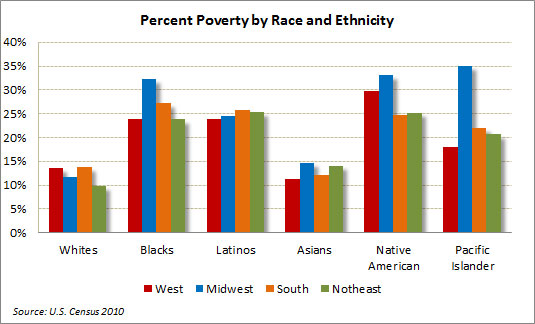What I mean by a fundamental trait is a trait that isn't chosen. Race counts, as does anything genetic, gender, sexual orientation, but there are other things that could as well. But in any case, if it helps you to think of it as genetics, that's probably close enough for this discussion. Just recall that what I'm talking about is broader than that.
So this is your dichotomy:
Either:
1. There's a legal unfairness
or
2. There's something racially wrong with black people over which they have no control.
Um...no. I reject that dichotomy.
It's a race-based bias that adversely impacts certain people. And it's a result of the system of justice rather than any particular individual action or circumstance. Hence systemic racism. Not so hard, right?
I completely disagree with this. It's not just race based. Saying that it's race based is entirely your own social liberal interpretation. That's not how policemen would describe it. They would probably describe it in these terms:
That's where known crimes are being committed. That's where we generally catch a lot of criminals. That's just the place to be.
You just don't want to look at the aggregate impact and how it hurts individuals of a particular group. If you blind yourself, you'll never see the problem.
I think that all of this is utterly irrelevent. The job of a policemen is to enforce the law. His job is to catch criminals. Period. End of story.
They don't want that. They want to be treated fairly. They don't want to be subject to unusual scrutiny. Most people have a few things to hide if you look close enough.
"They don't want that"?
Of course they don't. Because they're
criminals. That's precisely why policemen
should be patrolling those places, making stops, arresting people and putting them in prison.
It's pretty cut and dried.
That's non-responsive to the point that you quoted. I accused you of begging the question by encoding your racial assumptions into the question that you posed to me. Nice try though.
Your point, Rexlunae, is that the only viable explanation for the disparity is legal bias and systematic racism. What I've done is provided a set of viable explanations other than systematic racism. For the purposes of this argument, I feel no need to prove any of this. It's simply enough for me to say: "Y'know, it could happen that way. If it did happen that way, there would be a disparity, but no injustice."
You're the one who's claiming that the disparity is due to racism. I'm waiting for you to prove that.
It's a little strange seeing someone who prides themselves in their ability to reason stooping to run-of-the-mill Rush-Limbaugh style liberal-bashing. Are you really that desperate for a point?
You're the one claiming that the only reason that my stepfather doesn't arrest random people coming out of black churches on Sunday morning is because he's waiting for the KKK to do it. Just saying.

I was very clear at the outset what reasoning I rely upon, and it hasn't changed an iota. It's based on the observation of disparity of sentences under seemingly like conditions, and the dichotomy that you attempted unsuccessfully to assail earlier.
Emphasis mine. It's not enough to say that the cases are seemingly like. You have to show that they are actually like in all relevent ways. You haven't done that.
As far as I'm concerned, that's enough to establish at least a reasonable presumption of unfair treatment. Racism isn't limited to the simple, direct, intentional prejudice, and as you've demonstrated in crafting that scenario above, from a certain perspective, it can look like just a cop doing their job.
Ok. So we have a set of data and it's equally open to two different sets of interpretation:
1. It's just normal police work.
2. It's racism.
You say racism. I say normal police work.
Why should I think that your interpretation is any better than mine?
In fact, mine is much more compelling. It makes perfect sense for police to patrol known high crime areas.
That's what I think that they should be doing.
Still waiting on that one example of a hypothetical case that falls outside the dichotomy, or for you to concede the point.
I'm not even clear on what your dichotomy
is.
Either legal bias, or else, it's the fault of black people, i.e., because they simply commit more crimes?
No, but it is suspect, and it deserves an explanation, which has been sadly lacking in your attempts thus far. And, as you should know, my point isn't limited just to the disparity. Supra.
Again, you have to show me direct evidence for racism. I've already shown you what that evidence would look like. Either provide it or admit that you can't.
From each according to their abilities to each according to their needs. Yes, that's fair. So, you think black people just plain need more jail?
Black people in general? No. Black criminals and, in particular, repeat offenders and career criminals? You betcha. Jail or death. I'd be satisfied with either.




